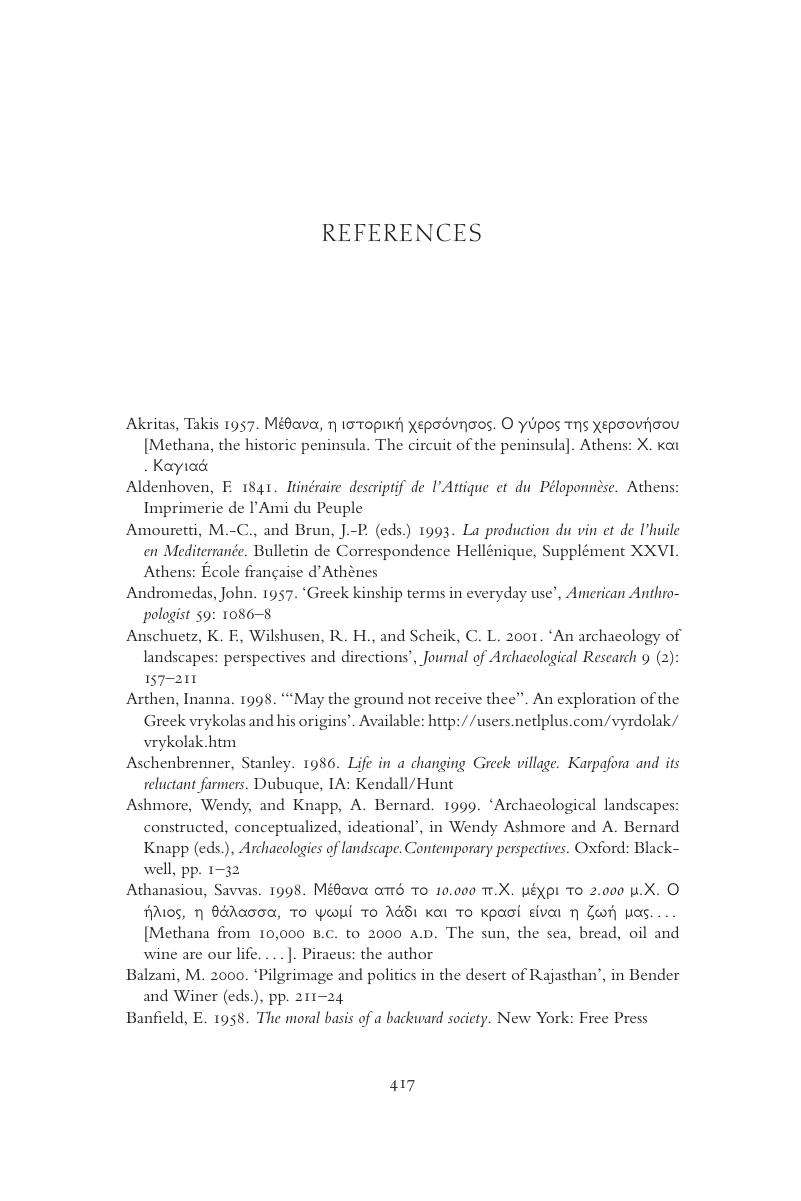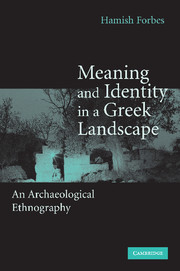Book contents
- Frontmatter
- Contents
- List of Illustrations and Tables
- Preface and Acknowledgements
- Transliteration Conventions
- 1 Introduction
- 2 Landscape Studies: From Frame-and-Tame to Visceral Feeling
- 3 Historical Background to the Landscape of Methana
- 4 Conducting Fieldwork on Methana
- 5 Kinship, Marriage and the Transmission of Names and Property
- 6 The Productive Landscape
- 7 The Historical Landscape: Memory, Monumentality and Time-Depth
- 8 The Kinship Landscape
- 9 The Religious Landscape
- 10 Conclusions: A Greek Landscape from Within
- Glossary
- Notes
- References
- Index
- References
References
Published online by Cambridge University Press: 04 May 2010
- Frontmatter
- Contents
- List of Illustrations and Tables
- Preface and Acknowledgements
- Transliteration Conventions
- 1 Introduction
- 2 Landscape Studies: From Frame-and-Tame to Visceral Feeling
- 3 Historical Background to the Landscape of Methana
- 4 Conducting Fieldwork on Methana
- 5 Kinship, Marriage and the Transmission of Names and Property
- 6 The Productive Landscape
- 7 The Historical Landscape: Memory, Monumentality and Time-Depth
- 8 The Kinship Landscape
- 9 The Religious Landscape
- 10 Conclusions: A Greek Landscape from Within
- Glossary
- Notes
- References
- Index
- References
Summary

- Type
- Chapter
- Information
- Meaning and Identity in a Greek LandscapeAn Archaeological Ethnography, pp. 417 - 432Publisher: Cambridge University PressPrint publication year: 2007



